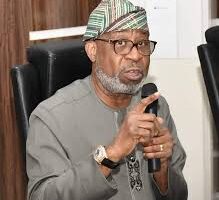Chima Unigwe (not real name) runs a small business in a Johannesburg suburb. He often serve his customers through locked gates for fear of being attacked by mobs in the neighbourhood. Chima left Nigeria about 5 years ago to join a friend who was doing well as a spare parts dealer in Jo’burg. In April 2015, Chima and his friend, another Nigerian, lost everything they had as violent erupted across South Africa. It is the worst Xenophobic attack in which over 60 people lost their lives and property worth millions of dollars destroyed. Not less than a hundred thousand people were displaced as foreign nationals were forcefully ejected from their homes and business premises in cities and suburbs. Th ey were accused of ‘spreading disease, stealing jobs and sponging off basic government services like electricity, running water and healthcare’. Running a small convenience store or living in the townships and indeed anywhere in South Africa has become a dangerous adventure for foreigners in the rainbow Nation. Th e recent xenophobic Xenophobia and Nigerians in South Africa attacks on Nigerians and other foreign nationals in parts South Africa echoes concerns that all is not well in the South African society where foreigners as now seen as a people ‘coming to reap where they have not sown.’ Cause of Xenophobia in SA Th e Mayor of Johannesburg, Herman Mashaba, may have become an excuse by the ruling ANC and the government of President Jacob Zuma for his statement allegedly urging South Africans to take on foreigners accused of ‘taking over their jobs and their wives’.
But the truth is that Mr. Mashaba and his likes in the opposition Democratic Alliance are simply repeating the same narrative that has kept the ANC in power since Th abo Mbeki was forced out. Today, ANC, DA and EFF (whose leader, Julius Malema led the violent youth wing of the ANC before now) are all guilty of fanning the embers of hatred in their bid to secure electoral victory. President Zuma campaigned against lack of access to land and employment opportunities for Black South Africans. Today, his government is the most corrupt in SA’s history and he has plunged the country into economic crisis with nearly 50% of the people now unemployed. Zuma’s government has taken South Africa so backward that the black South African who is poorly educated and lacking exposure is now so angry and afraid of losing any semblance of livelihood that exist. Th e result is the unrest in the mines; in campuses and violence against foreign nationals living in the country. Rising from apartheid in the 1990s, South Africans hardly knew about other nations even though the rest of African contributed largely to the eventual end of white minority rule. Th ey (Black South Africans) are therefore fi nding it strange to co-habit freely with other nationals despite the heavy infl ux of foreigners in their country as business people and others in search of the proverbial greener pasture.
I work in an industry where the top ten of the major communications consultancy outfi ts in Lagos send at least fi ve of their employees to train in South Africa yearly. Apart from Ghana, the fi rst destination for middle class Nigerian families holidaying in Africa is Capetown. Th e Nigeria-South African Chamber of Commerce (NSAC) is one of the most active chambers in the country. In 2012 (and beyond), MTN Nigeria generated more profi t than all the other country operations, including South Africa, combined. Nearly every international brand seeking a footing in Nigeria fi rst launches in South Africa. MTN, Shoprite, Multichoice, Park ‘n’ Shop etc.and all properties and contents associated with them all have South African origin. Th e Nigerian Music industry have seen an increasing number of videos shot in South Africa. Unfortunately, the often lazy and deprived South Africans do not see any reason for the number Nigerians doing legitimate businesses in their country.
Where is the Nigeria in South Africa? Why should SA nationals forget so quickly that Nigeria joined forces with other African nations to rescue Black South Africans from the jaws of an oppressive apartheid rule of the white minority? For many years, we embraced the tag of a lame giant and puff around that ‘Africa is the centre piece of our foreign policy’ even as our infl uence continues to dwindle where it mattered most. A few months after the xenophobic attacks on Nigerians in 2015, Nigeria rolled the red carpet to welcome Jacob Zuma. Here is a man who is evidently complicit in this hate crime and whose government is directly responsible for the attacks but prefers to live in denial. Today, corruption in Zuma’s South Africa has left average South Africans more deprived than they were under apartheid. No matter how one looks at this problem, the inept leadership of Zuma and his cohorts in the ANC, DA or EFF and the inability of Nigeria and other African countries to look inward and support their citizens to be more productive and self-reliant are partly responsible for the xenophobic attacks. Although there is an uneasy calm for now, the lack of stern response from Nigeria will further leave Nigerians and other African nationals, whose eff ort helped to birth South Africa, at the mercy of a marauding tribe of criminals engaged in hateful xenophobia in the name of nationalism.



